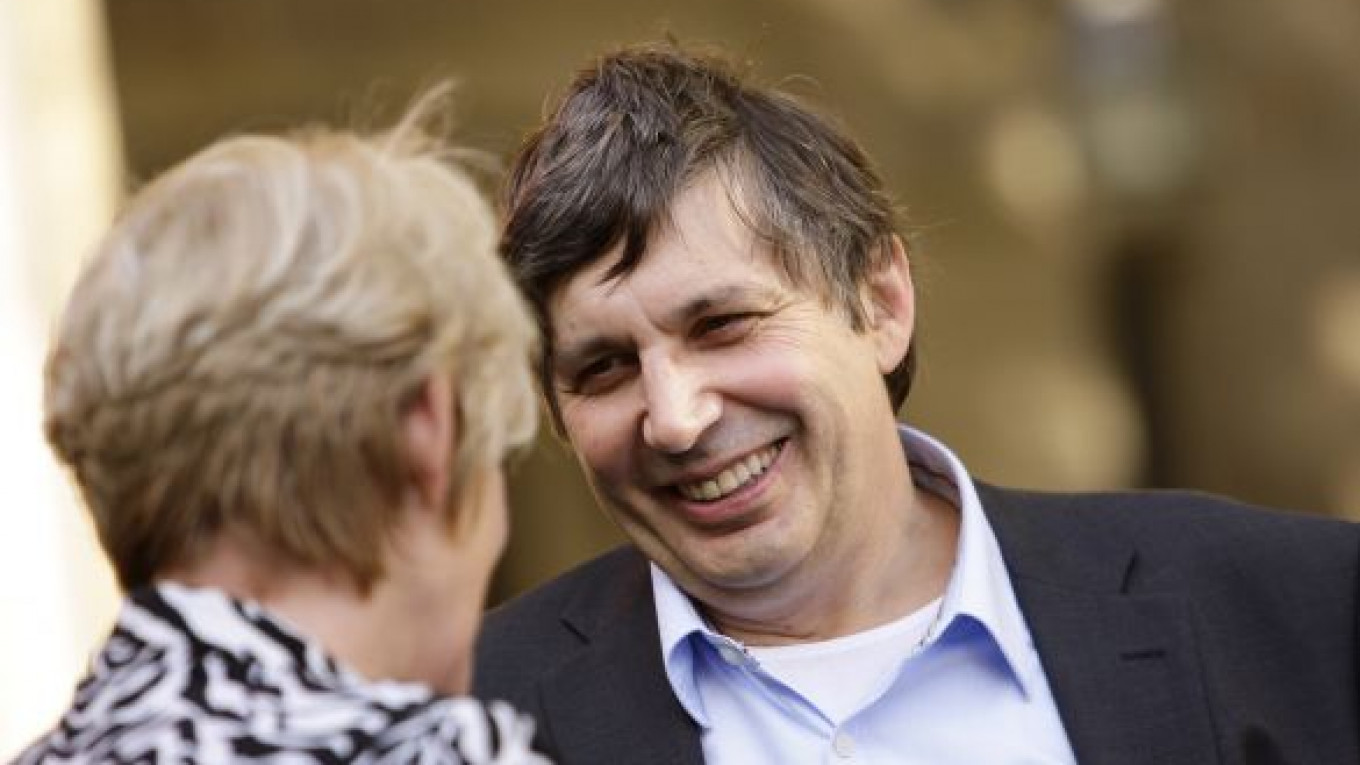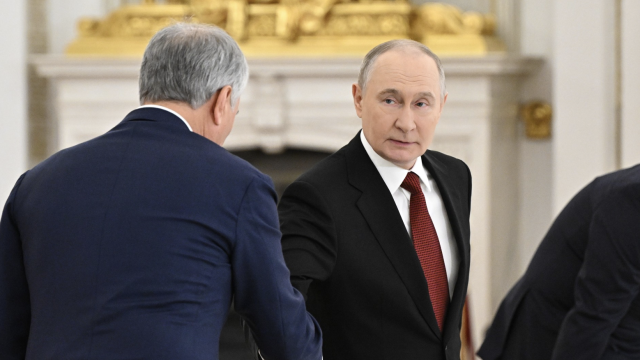STOCKHOLM — Two Russian-born scientists shared the Nobel Prize in physics on Tuesday for groundbreaking experiments with the strongest and thinnest material known to mankind — a potential building block for faster computers and lighter airplanes and satellites.
University of Manchester professors Andre Geim and Konstantin Novoselov used Scotch tape to isolate graphene, a form of carbon only one atom thick but more than 100 times stronger than steel, and showed that it has exceptional properties, the Royal Swedish Academy of Sciences said.
Experiments with graphene could lead to the development of new superstrong and lightweight materials with which to make satellites, aircraft and cars, the academy said in announcing the 10 million kronor ($1.5 million) award.
The unique properties of the transparent material could also spur the development of innovative electronics, including transparent touch screens, more efficient computers and solar cells, although no commercial products have been created yet.
"It has all the potential to change your life in the same way that plastics did," Geim said Tuesday. "It is really exciting."
Geim, 51, is a Dutch national, while Novoselov, 36, holds both British and Russian citizenship. Both were born in Russia and started their careers in physics there. They first worked together in the Netherlands before moving to Britain, where they reported isolating graphene in 2004.
Novoselov is the youngest winner since 1973 of a prize that normally goes to scientists with decades of experience. The youngest Nobel laureate to date is Lawrence Bragg, who was 25 when he shared the physics award with his father William Bragg in 1915.
"It's a shock," Novoselov said. "I started my day chatting over Skype over new developments — it was quite unexpected."
Geim said he didn't expect to win the prize this year either and had forgotten that it was Nobel time when the prize committee called him from Stockholm.
The two scientists used simple Scotch tape as a crucial tool in their experiments, peeling off thin flakes of graphene from a piece of graphite, the stuff of pencil leads.
"It's a humble technique. But the hard work came later," Geim said.
Paolo Radaelli, a physics professor at the University of Oxford, marveled at the simple methods the winners used.
"In this age of complexity, with machines like the super collider, they managed to get the Nobel using Scotch tape," Radaelli said.
Geim last year won the prestigious Korber European Science Award for the discovery, the University of Manchester said. He also won the "Ig nobel" prize in 2000 for making a frog levitate in a magnetic field. That award is handed out by the Annals of Improbable Research magazine for silly-sounding scientific discoveries that often have surprisingly practical applications.
The 2010 Nobel Prize announcements started Monday with the medicine award going to British researcher Robert Edwards, 85, for work that led to the first test-tube baby. That achievement has helped bring 4 million infants into the world so far and raised challenging new questions about human reproduction.
The chemistry prize will be announced Wednesday, followed by literature on Thursday, the peace prize on Friday and economics on Monday.
A Message from The Moscow Times:
Dear readers,
We are facing unprecedented challenges. Russia's Prosecutor General's Office has designated The Moscow Times as an "undesirable" organization, criminalizing our work and putting our staff at risk of prosecution. This follows our earlier unjust labeling as a "foreign agent."
These actions are direct attempts to silence independent journalism in Russia. The authorities claim our work "discredits the decisions of the Russian leadership." We see things differently: we strive to provide accurate, unbiased reporting on Russia.
We, the journalists of The Moscow Times, refuse to be silenced. But to continue our work, we need your help.
Your support, no matter how small, makes a world of difference. If you can, please support us monthly starting from just $2. It's quick to set up, and every contribution makes a significant impact.
By supporting The Moscow Times, you're defending open, independent journalism in the face of repression. Thank you for standing with us.
Remind me later.






